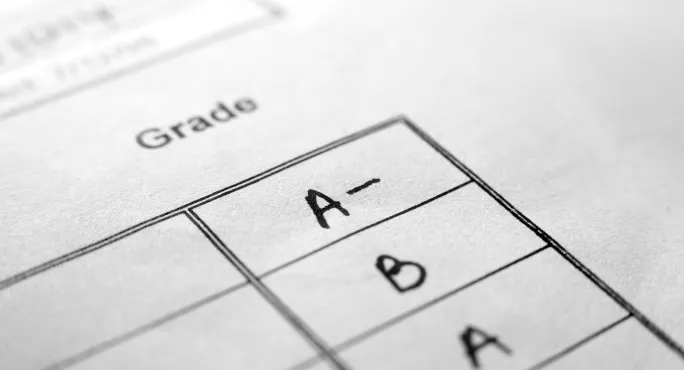How are schools creating teacher-assessed grades?

Working out this summer’s teacher-assessed grades is quite a different task to assigning last year’s centre-assessed ones.
For starters, schools have had less teaching time with these students. With the announcement in March 2020 that exams were cancelled, teachers had already taught the majority of content for their courses.
This year, exam students will mostly be at the end of two-year courses after three terms of lockdown learning in its various different classroom and virtual forms. This means that there is much less work for teachers to base their judgements on compared with last year.
GCSEs 2021: How to give fair teacher-assessed grades
Assessment: GCSE 2021 grades - Ofqual’s 7 key points
Guidance: Teachers mock ‘hilarious’ grade descriptors
The guidelines for teacher-assessed grades (TAGs) have been released now, but there are still many questions for leaders to consider. When asked about their approach to TAGs, many told us that the decision-making process had been fraught.
On the one hand, school leaders are being told to ensure that it is no easier or harder to achieve a grade this year than any other year, and then, on the other, there is the insistence that these grades should be comparable with previous years’, despite the fact that students have faced huge disruptions to their learning.
And, unlike with normal exams, which can only really be run one way, there are countless ways that schools can legitimately approach the TAGs this summer. So how are school leaders approaching the process?
GCSEs and A levels 2021: Awarding teacher-assessed grades
The number of assessments
Katherine Childs, head of English at Wey Valley Academy in Weymouth, Dorset, explains that her school has had to make a decision about the number of new assessments to go in the portfolio.
“All Year 11 students will have a portfolio of assessments done between now and 28 May,” she says. “In English, for example, we are planning four assessments that will cover different aspects of the course: two language and two literature.”
Preparation
The amount of preparation for these assessments has also had to be agreed, she continues.
“All subjects are giving the students five or six lessons’ teaching time,” she says. “And then advising them of the general topic area, and revising the content for the assessment.”
Weighted assessment
Jonathan Mountstevens, deputy headteacher at Beaumont School in Hertfordshire, says his school has solved the issue of different conditions for the various assessments by not treating them all equally.
“[We will use a] portfolio of assessment evidence for each qualification,” he says. “And the elements of this portfolio are weighted, with the value of each assessment dependent upon factors including the extent of the syllabus covered, the point in the course when it was completed and the security of the conditions.”
In order to adhere to the requirement to take into account individual circumstances, Mountstevens says students will be given a chance to give their thoughts about these portfolios.
“We have informed students and their parents/carers of the content and weighting of each assessment portfolio,” he continues. “Then they have the opportunity to request that we make adjustments for reasons such as disruption due to significant ill-health.”
Assessment weeks
Time is tight and the deadline of 18 June is looming. Mountstevens says his school has gone for a whole-school approach to simplify the process.
“We have designated certain weeks of the coming term as assessment weeks,” he says. “We will operate a centralised assessment timetable under secure conditions to make things as fair as possible.”
Moderation
“The portfolios are moderated and kept in school,” Childs explains. “Moderating will be done as a department. In the English department, we feel equipped to do this as I myself am an experienced literature examiner, and we have three experienced language examiners and another teacher who has also examined literature before, so we feel confident that we have a good understanding of the mark schemes, etc.
“All our Year 11 teachers are also very experienced and have completed exam board training, so we should be fairly confident with our applications of the mark scheme.”
Internal checks
“Once we have marked and moderated the work produced, we will take the scores, apply the appropriate weightings, and combine them with the weighted scores from assessments conducted in the past,” Mountstevens says. “This process will provide a final score for each candidate.
“The assessment evidence will then be reviewed by subject teams against the standards set out in the JCQ grade descriptors, in order to reach a professional judgement about where the grade boundaries should be placed. We will then review against historical data for the centre to see if anything calls for further investigation.
You need a Tes subscription to read this article
Subscribe now to read this article and get other subscriber-only content:
- Unlimited access to all Tes magazine content
- Exclusive subscriber-only stories
- Award-winning email newsletters
Already a subscriber? Log in
You need a subscription to read this article
Subscribe now to read this article and get other subscriber-only content, including:
- Unlimited access to all Tes magazine content
- Exclusive subscriber-only stories
- Award-winning email newsletters
topics in this article



